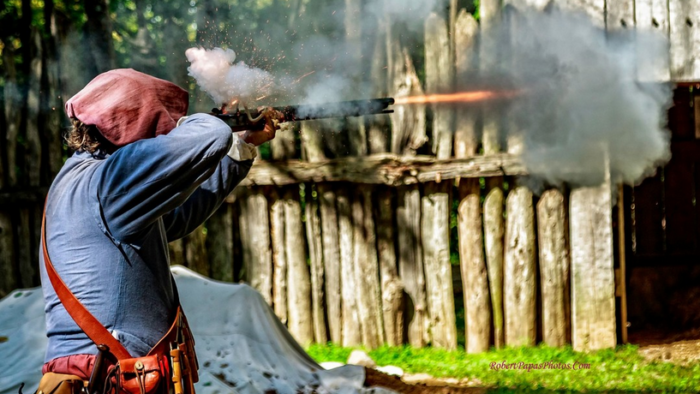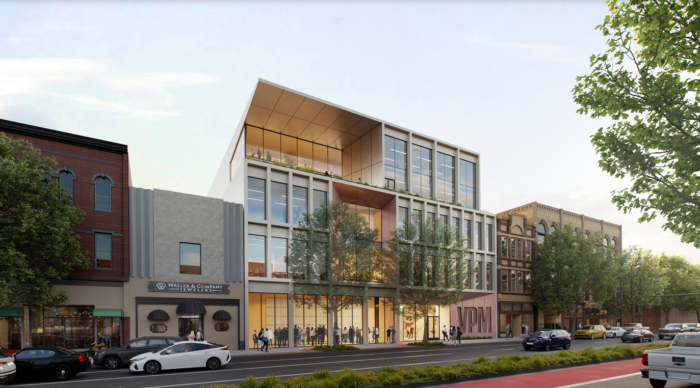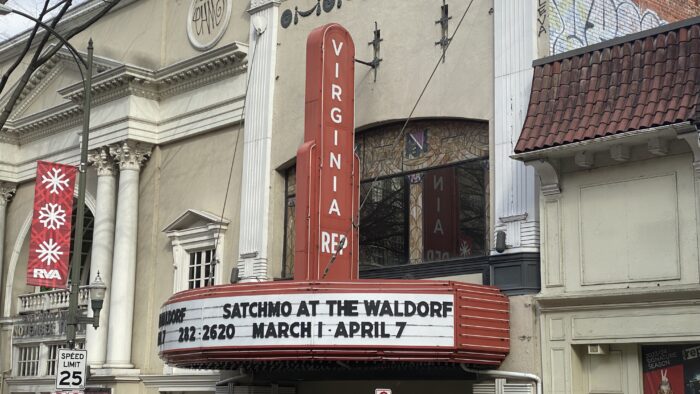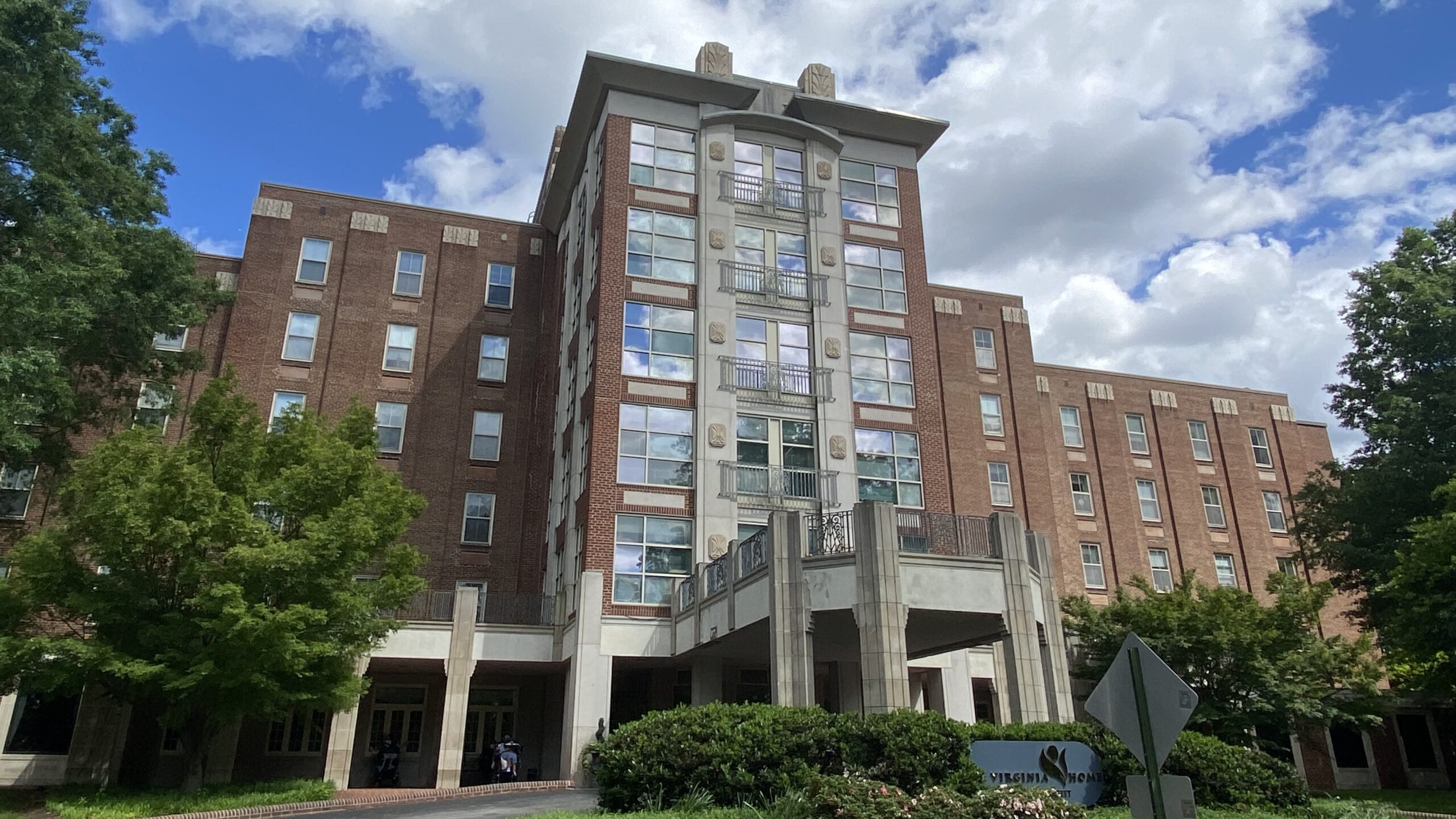It was a year of highs and lows for the local nonprofit industry, with some contending with financial challenges while others celebrated major capital projects.
Facing a budget deficit, Virginia Repertory Theatre made a public appeal for donations in September, saying at the time that it would have to close down before year’s end if it couldn’t secure emergency funding.
The performing arts group set out to raise $600,000 and ended up with more than $1 million over an 11-day donor drive. The organization’s leadership said the cash infusion put it on track to restructure its operations and to get on a path toward more sustainable operations.
As part of those efforts, Virginia Rep then listed for sale its Center for Arts and Education at 4204 Hermitage Road in Northside. The organization acquired the 50,000-square-foot facility, which has a 650-seat theater and 400-plus-seat banquet hall, in 2022.
In addition to that cost-cutting measure, Virginia Rep shared plans to produce fewer shows in 2025, which would help keep it on an improving financial trajectory.
At the time of its funding appeal, Virginia Rep said it had a $1.7 million budget shortfall in the current fiscal year and expected a $1.6 million deficit in the coming year.
The theater’s financial issues arose out of multiple factors, including the departure of some donors after its co-founders exited as well as industrywide challenges of rising costs and a slow return of audiences to performances since the COVID-19 pandemic.

Henricus Historical Park is a living history museum that’s dedicated to the Citie of Henricus, which was founded in 1611. (Courtesy Henricus Historical Park)
Henricus Historical Park found itself with a budget shortfall this year after Henrico County pulled funding support for the organization in the spring.
That cost Henricus about a third of its annual operating budget, and Henricus foundation leaders said they were surprised by the decision.
In fiscal year 2024, Henrico provided $356,000 to the historical organization, which depicts the Citie of Henricus that was established in 1611 and was the second successful English settlement in Virginia.
Henrico said it pulled the funding for FY25 to address other county budget priorities, including a desire to increase funding for a regional curbside recycling program to keep the program going after Chesterfield opted out of the service in 2023.
Despite its financial challenges, Henricus this fall took initial steps toward creating a replica 1620s home on its grounds. The project is a replacement for a similar building that depicts the domestic life of English yeoman farmers.
The thatched-roof structure, which is expected to break ground early next year, was estimated to cost less than $200,000 and would be the largest project at Henricus since the construction of the site’s church about 10 years ago. The Henricus site also features a re-created English fort and Powhatan village.
Major capital projects
Also notable in the local nonprofit sector were a handful of eight- and nine-figure capital projects that moved forward or wrapped up this year.
The Virginia Home took steps in 2024 toward an eventual move to Hanover County from its location in Richmond.
The nonprofit home for adults with disabilities shared plans in the spring to build a 160-bed facility in Mechanicsville. To help finance the move, the organization told BizSense that it intends to sell off its current 130-bed facility at 1101 Hampton St., which overlooks Swan Lake and Shields Lake at Byrd Park.
The Virginia Home filed for state regulatory approval to make the move and also successfully secured $70 million of bond financing through an arrangement with Hanover this year.
The new 190,000-square-foot facility is anticipated to cost $134 million and would be built near the intersection of Pole Green and Bell Creek roads. The Virginia Home is pursuing the project because it has run out of room to expand at its Richmond property, where it provides nursing and therapy services to its residents.
The relocation to Hanover is anticipated to take place around late 2027 and would cap nearly a century for the organization on Hampton Street.
Lewis Ginter Botanical Garden in April broke ground on a $31 million project, the garden’s largest expansion in two decades.
The project is planned to almost double the conservatory’s size, add more than 7 acres of new gardens and renovate and incorporate a second lake at the property.
Also involved in the project is a new permanent butterfly house at the conservatory. New gardens would be added to the hillsides next to the conservatory.
The project for the 82-acre property in Lakeside had been years in the making as part of a 2016 master plan. Lewis Ginter officials have said the plan is to open the expanded conservatory and new garden areas in the spring of 2026.

A rendering of the five-story headquarters building on the Broad Street planned by VPM. (Courtesy SMBW/VPM)
Public media nonprofit VPM broke ground in the summer on a new headquarters in downtown Richmond.
Underway is a five-story, 53,700-square-foot building at 15 E. Broad St. The facility is planned to feature the organization’s TV, digital and audio studios, as well as to be a venue for its civic programming and events.
VPM awarded a $44.7 million construction contract for the project in June, following the acquisition of the site earlier in the year. It hopes to move into the new headquarters in 2026.
The project also includes a 1,500-square-foot, one-story building on the end of the property fronting Grace Street, as well as a parking garage.
VPM plans to relocate to the new spot from its current Chesterfield location, which dates to 1964 and has been deemed obsolete and without the capacity for updated technology.
Meanwhile, regional food bank Feed More finished construction on a new $40 million headquarters in Henrico. The nonprofit’s 24,000-square-foot warehouse is nearly 40% larger than its former location near The Diamond, where it was headquartered for more than 20 years. The new facility at 8020 Villa Park Drive near St. Joseph’s Villa allows for as many as 15,000 meals to be prepared every week.
It was a year of highs and lows for the local nonprofit industry, with some contending with financial challenges while others celebrated major capital projects.
Facing a budget deficit, Virginia Repertory Theatre made a public appeal for donations in September, saying at the time that it would have to close down before year’s end if it couldn’t secure emergency funding.
The performing arts group set out to raise $600,000 and ended up with more than $1 million over an 11-day donor drive. The organization’s leadership said the cash infusion put it on track to restructure its operations and to get on a path toward more sustainable operations.
As part of those efforts, Virginia Rep then listed for sale its Center for Arts and Education at 4204 Hermitage Road in Northside. The organization acquired the 50,000-square-foot facility, which has a 650-seat theater and 400-plus-seat banquet hall, in 2022.
In addition to that cost-cutting measure, Virginia Rep shared plans to produce fewer shows in 2025, which would help keep it on an improving financial trajectory.
At the time of its funding appeal, Virginia Rep said it had a $1.7 million budget shortfall in the current fiscal year and expected a $1.6 million deficit in the coming year.
The theater’s financial issues arose out of multiple factors, including the departure of some donors after its co-founders exited as well as industrywide challenges of rising costs and a slow return of audiences to performances since the COVID-19 pandemic.

Henricus Historical Park is a living history museum that’s dedicated to the Citie of Henricus, which was founded in 1611. (Courtesy Henricus Historical Park)
Henricus Historical Park found itself with a budget shortfall this year after Henrico County pulled funding support for the organization in the spring.
That cost Henricus about a third of its annual operating budget, and Henricus foundation leaders said they were surprised by the decision.
In fiscal year 2024, Henrico provided $356,000 to the historical organization, which depicts the Citie of Henricus that was established in 1611 and was the second successful English settlement in Virginia.
Henrico said it pulled the funding for FY25 to address other county budget priorities, including a desire to increase funding for a regional curbside recycling program to keep the program going after Chesterfield opted out of the service in 2023.
Despite its financial challenges, Henricus this fall took initial steps toward creating a replica 1620s home on its grounds. The project is a replacement for a similar building that depicts the domestic life of English yeoman farmers.
The thatched-roof structure, which is expected to break ground early next year, was estimated to cost less than $200,000 and would be the largest project at Henricus since the construction of the site’s church about 10 years ago. The Henricus site also features a re-created English fort and Powhatan village.
Major capital projects
Also notable in the local nonprofit sector were a handful of eight- and nine-figure capital projects that moved forward or wrapped up this year.
The Virginia Home took steps in 2024 toward an eventual move to Hanover County from its location in Richmond.
The nonprofit home for adults with disabilities shared plans in the spring to build a 160-bed facility in Mechanicsville. To help finance the move, the organization told BizSense that it intends to sell off its current 130-bed facility at 1101 Hampton St., which overlooks Swan Lake and Shields Lake at Byrd Park.
The Virginia Home filed for state regulatory approval to make the move and also successfully secured $70 million of bond financing through an arrangement with Hanover this year.
The new 190,000-square-foot facility is anticipated to cost $134 million and would be built near the intersection of Pole Green and Bell Creek roads. The Virginia Home is pursuing the project because it has run out of room to expand at its Richmond property, where it provides nursing and therapy services to its residents.
The relocation to Hanover is anticipated to take place around late 2027 and would cap nearly a century for the organization on Hampton Street.
Lewis Ginter Botanical Garden in April broke ground on a $31 million project, the garden’s largest expansion in two decades.
The project is planned to almost double the conservatory’s size, add more than 7 acres of new gardens and renovate and incorporate a second lake at the property.
Also involved in the project is a new permanent butterfly house at the conservatory. New gardens would be added to the hillsides next to the conservatory.
The project for the 82-acre property in Lakeside had been years in the making as part of a 2016 master plan. Lewis Ginter officials have said the plan is to open the expanded conservatory and new garden areas in the spring of 2026.

A rendering of the five-story headquarters building on the Broad Street planned by VPM. (Courtesy SMBW/VPM)
Public media nonprofit VPM broke ground in the summer on a new headquarters in downtown Richmond.
Underway is a five-story, 53,700-square-foot building at 15 E. Broad St. The facility is planned to feature the organization’s TV, digital and audio studios, as well as to be a venue for its civic programming and events.
VPM awarded a $44.7 million construction contract for the project in June, following the acquisition of the site earlier in the year. It hopes to move into the new headquarters in 2026.
The project also includes a 1,500-square-foot, one-story building on the end of the property fronting Grace Street, as well as a parking garage.
VPM plans to relocate to the new spot from its current Chesterfield location, which dates to 1964 and has been deemed obsolete and without the capacity for updated technology.
Meanwhile, regional food bank Feed More finished construction on a new $40 million headquarters in Henrico. The nonprofit’s 24,000-square-foot warehouse is nearly 40% larger than its former location near The Diamond, where it was headquartered for more than 20 years. The new facility at 8020 Villa Park Drive near St. Joseph’s Villa allows for as many as 15,000 meals to be prepared every week.





Nothing equals the Enrichmond debacle of 2022.